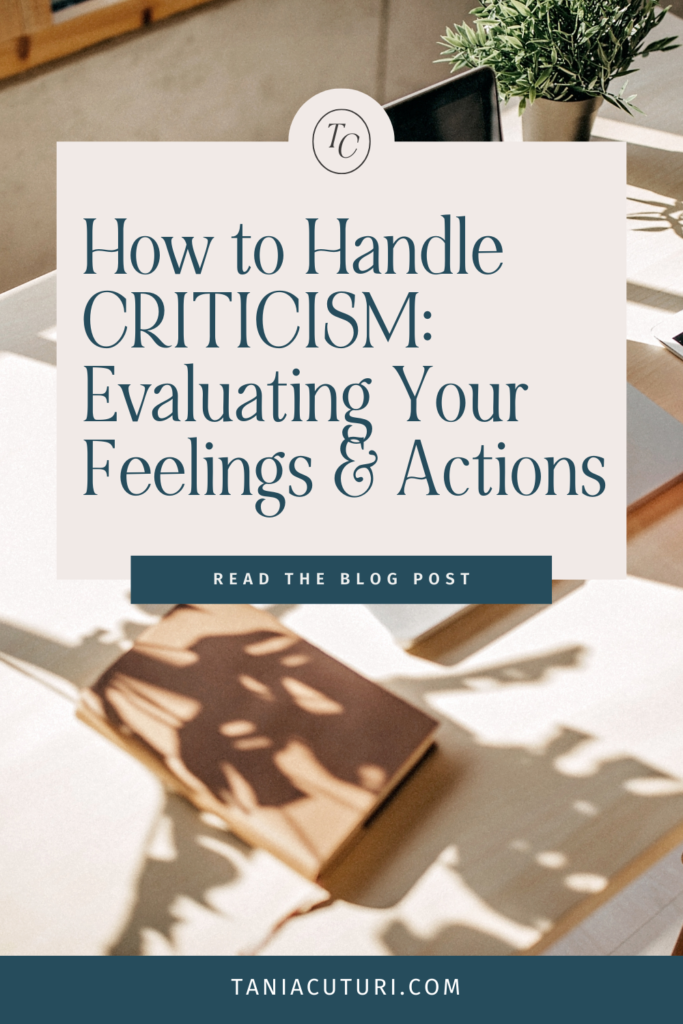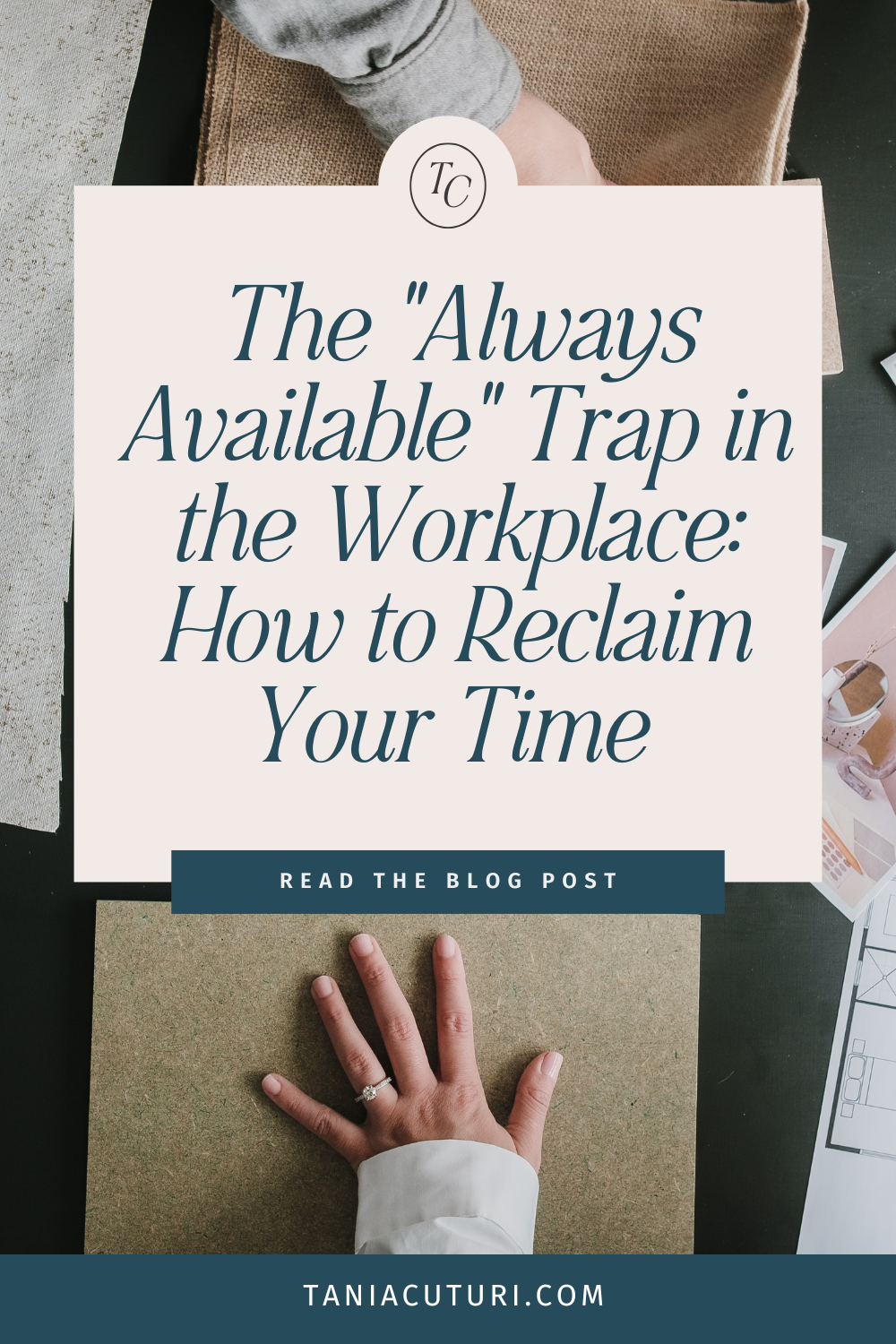How to Handle Criticism: Evaluating Your Feelings and Actions
15 Aug, 2024 | 5 min
Criticism is an inevitable part of life, especially in professional and creative fields.
How we handle criticism can significantly impact our personal growth and relationships. Often, the way we react to feedback says more about our internal state than about the quality of the work being criticized.
I remember asking my coach, Sam who has a great amount of followers on Instagram how he handles criticism and unsolicited comments. His answer was: “If someone wants to play tennis and they’re on the other side and you choose not to swing the ball, will the game start?“. We can choose not to respond to negative comments, most of them will die alone.
The thing to take care of is our internal response to them. Once we have dismissed or ignored those comments, if we remain affected by them, it is key to understand where is the pain coming from. Is it because we feel unfairness or judged wrongly? There is probably a wound here that connects to the excessive pain you may be feeling inside.
Here’s a quick guide on how to handle criticism constructively by evaluating your feelings and actions.

This was actually a video message I recorded for my children about handling criticism. 😊 This messaging can work for both children and parents alike!
Follow me on Instagram for more tips for working parents.
Understanding the Source of Criticism (So You Can Handle It)
1. Consider the Intentions Behind the Criticism
The first step to handle criticism is to evaluate the intentions of the person giving feedback. Is the criticism constructive or is it delivered with the intent to belittle?
Constructive criticism aims to help you improve, providing specific, actionable advice. In contrast, destructive criticism often stems from jealousy, insecurity, or misunderstanding.
Before reacting, consider whether the feedback was solicited. If someone offers an opinion without being asked, it may reflect more about their feelings than about your work. Unsolicited criticism often reveals the critic’s insecurities or biases.
Very often criticism and negative comments are more to do with the person saying it than yourself. It can be tricky to dissociate the two, especially if it is on social media where the person may have never met you before. When someone is feeling hate inside or pain inside, they will probably share that to the world in some way or another.
2. Reflect on Your Emotional Response
How you feel about criticism can reveal much about your internal state.
If certain feedback makes you feel defensive, anxious, or jealous, these emotions might indicate underlying wounds that need attending. When was the first time you felt rejected? Is this something that you feel is a familiar trigger of yours? The feeling of not being good enough or needing validation is something very familiar to me. I have been working on this for quite some time now and what was the most helpful has been to focus on a few key events and release the emotional “glue” around those to then feel less triggered when someone shares their thoughts about something.
You might feel defensive because the criticism highlights a weakness you already recognise in yourself.
Instead of immediately dismissing the feedback, take a moment to understand why it triggered such a strong emotional response.
Ready for a Confidence Boost? Join my free 5-Day Confidence Boosting Challenge for Working Parents!
Constructive Reactions to Criticism
1. Practice Active Listening
When the intention is the right one, meaning that the person is here to help you and want you to succeed, we want to be ready to listen and connect with our internal triggers.
When receiving criticism, practice active listening. This means paying full attention to the speaker, acknowledging their points, and asking clarifying questions if needed.
Active listening helps you understand the specific areas where improvement is suggested and shows the critic that you value their input.
2. Separate the Criticism from Your Self-Worth
It’s important to remember that criticism of your work is not a criticism of your worth as a person.
This separation allows you to view feedback objectively and consider it as a tool for growth rather than a personal attack. By detaching your self-worth from your work, you can approach criticism more rationally and less emotionally.
3. Seek to Understand the Critic’s Perspective
If possible, engage with the critic to understand their perspective better. Ask questions such as, “What specific aspects of my work did you think could be improved?” or “Can you provide examples of what you would consider a better approach?”
This not only helps you gain clarity but also demonstrates your willingness to learn and grow.
4. Use Criticism as a Learning Opportunity
The main learning opportunity is how you feel about the feedback when you receive it. If the feeling is too overwhelming and you have the desire to defend yourself excessively or fight back or even hurt the person in return, then it might be worth pausing and dissolving the emotional charge around this particular feedback you have been receiving.
Could it be that you feel a lot of resentment towards that person? Is it waking inside of yourself something you dislike about you and feel like there is nothing you can do to change?
Personal development becomes easier when we spend time on our emotional state here, if you feel like you struggle speaking to certain colleagues or promote yourself because you fear the criticism or rejection, you can work around that and create a new path.
5. Know When to Disregard Criticism
Not all criticism is useful or valid. If feedback is vague, overly harsh, or not constructive, it may not be worth your time and energy.
Learn to discern between constructive criticism that can aid your growth and negative comments that are better left unconsidered.
Conclusion
Handling criticism effectively involves a combination of self-reflection, active listening, and a willingness to learn.
The main thing about criticism is knowing that it more often mean something about the person saying it, their own insecurities over the message itself.
If the message is well intended and you feel an inappropriate response internally, then the importance is on understanding your inner world better.
By evaluating the source and intent of criticism, understanding your emotional reactions, and responding constructively, you can use feedback as a powerful tool for personal and professional growth.
Remember, the goal is not to avoid criticism but to learn how to navigate it with grace and resilience.
Share this blog on social!




Meet Tania!
With three energetic kids, I know what it’s like to have to juggle your career goals and desire to be a good parent. That’s why I’m so passionate about helping working mums manage your time in the best way, so you can spend quality time with your kids and still find the courage to go after what you want in life.

Break the Parenting Mold with Connection, Confidence, and Compassion
04 Oct, 2025
As parents, we all come into this journey with expectations: of ourselves, of our children, and of what family life “should” look like. But what happens when your child doesn’t quite fit the mold? When their behavior or way of communicating doesn’t line up with what you imagined, or what society tells you is “normal”?… Continue reading Break the Parenting Mold with Connection, Confidence, and Compassion

The Myth of “This Is the Only Path” for High-Performing Professionals
20 Sep, 2025
There’s a belief I see often in high-performing professionals, especially those working in fast-paced, competitive industries like finance, law, or tech. It’s the belief that “this is the only path” that you can take. One version of success. One way to move forward. And the only “good” choice is the one that keeps you on… Continue reading The Myth of “This Is the Only Path” for High-Performing Professionals

The “Always Available” Trap in the Workplace: How to Reclaim Your Time
06 Sep, 2025
There’s a kind of pressure that doesn’t always get talked about, but most of us feel it: The pressure to be “always available”. Especially in high-achieving work cultures, there’s this expectation (spoken or not) that you should respond quickly, drop what you’re doing, or stay late, just in case you’re needed. And if you don’t,… Continue reading The “Always Available” Trap in the Workplace: How to Reclaim Your Time








